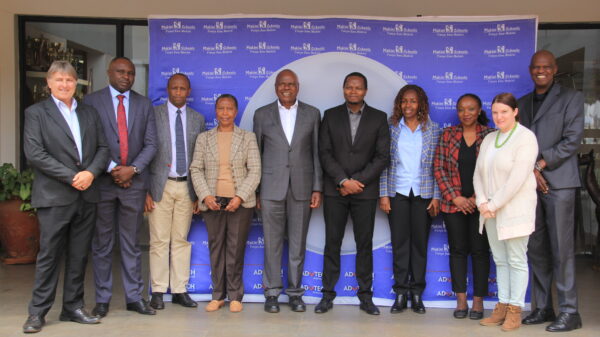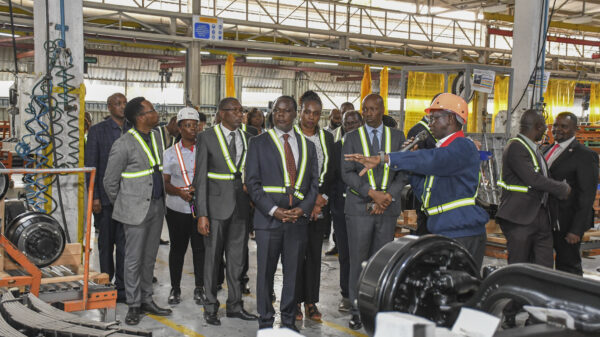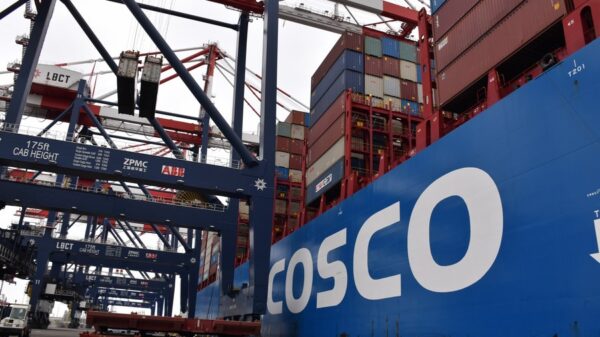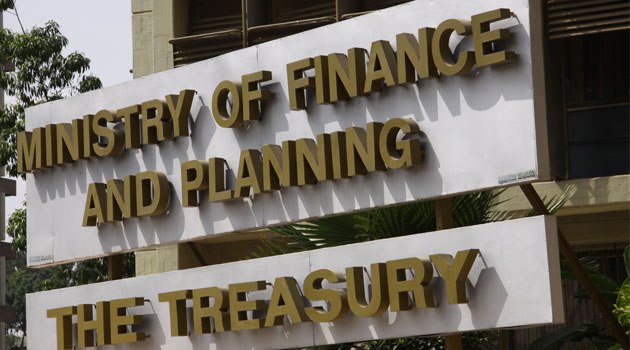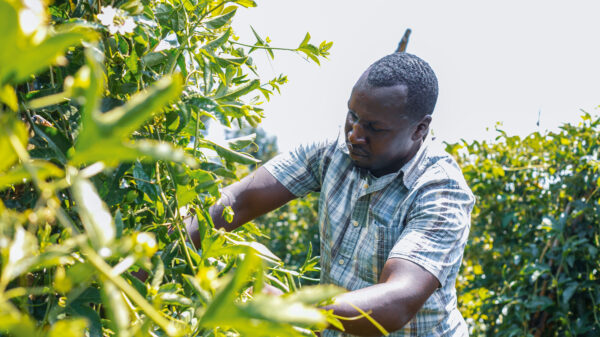NAIROBI, Kenya Apr 7 – ICT Cabinet Secretary William Kabogo on Monday called on African countries to unite behind an ambitious and coordinated digital development agenda as he opened the International Telecommunication Union (ITU) Regional Development Forum (RDF) for Africa in Nairobi.
Kabogo announced that Kenya had recently launched a National Artificial Intelligence Strategy aimed at making the country a global hub for ethical and inclusive AI deployment across key sectors, including agriculture, health, and public services.
“Our deliberations come at a critical juncture in the continent’s digital trajectory. ICTs are no longer peripheral—they are central to Africa’s socio-economic transformation,” Kabogo told ministers, diplomats, and delegates from across the continent.
He cited a recent report by the International Finance Corporation and Google, projecting that digital transformation could inject up to $180 billion into Africa’s GDP by the end of this year, while the digital economy globally continues to grow more than twice as fast as overall GDP.
Kabogo underscored Kenya’s rapid strides in digital infrastructure, including plans to roll out 100,000 kilometers of fiber optic cable, 25,000 public Wi-Fi hotspots, and 1,450 digital hubs.
The Cabinet Secretary also cited Kenya’s move to manufacture affordable smartphones locally, expand 5G coverage, and develop Africa’s first eco-data center powered entirely by clean energy.
“Through the e-Citizen platform, over 22,000 government services are now online,” he said. “We are aligning with climate goals through our recently approved Cloud First policy and green ICT production.”
However, Kabogo warned that Africa’s potential could be derailed if urgent action is not taken to address connectivity gaps, high data costs, and cybersecurity risks.
He pointed to recent ITU data showing that Africa’s internet penetration stands at just 38 percent, far below the global average of 67 percent.
“Smartphone penetration in Africa is about 50%. The average cost of 1GB of data in sub-Saharan Africa is $3.31—much higher than the global average of under $1,” he noted, calling for smarter investment, regulatory reforms, and inclusive financing models.
On cybersecurity, Kabogo said the threat landscape is growing more sophisticated due to AI misuse, geopolitical tensions, and supply chain vulnerabilities. He emphasized Kenya’s proactive response, including the strengthening of the Kenya Computer Incident Response Team (KE-CIRT/CC).
“As Africa, we must converge around common cybersecurity standards, share intelligence, and build capacity to secure the foundations of our digital economies,” he said.
Kabogo further urged African countries to align their priorities ahead of the World Telecommunication Development Conference (WTDC) 2025 in Baku, Azerbaijan, insisting that “Africa must speak with one voice—assertive, bold, and united.”
Director General of the Communications Authority of Kenya David Mugonyi emphasized that the RDF was not just a meeting—but a strategic checkpoint in Africa’s digital evolution.
“This is a moment for honest evaluation. We must examine our progress since the Kigali Action Plan and double down on efforts to build inclusive digital ecosystems,” Mugonyi said.
He noted that Kenya remains one of the most connected countries in East Africa, with eight submarine cables and the National Optic Fibre Network Backhaul Initiative (NOFBI) reaching all 47 counties.
Mugonyi also highlighted Kenya’s efforts to utilize the Universal Service Fund to improve access and foster innovation hubs like iHub, Nailab, and C4DLab.
“We must present ourselves as legitimate stakeholders in global ICT discussions and push for ambitious and impactful measures at WTDC 2025,” Mugonyi asserted.
ATU Secretary General John Omo underscored that the RDF must serve as a springboard for translating policy commitments into actionable outcomes.
“When digital access is unreliable for 60% of our population, social inclusion and economic participation are undermined,” Omo said. “We need structured cooperation to fix regulatory fragmentation and strengthen African-owned project pipelines.”
He praised Kenya’s Digital Public Infrastructure roadmap and pointed to the success of the ATU Africa Innovation Challenge as proof that Africa’s digital future must be built on innovation, partnerships, and local solutions.
The forum has brought together policymakers, tech leaders, and development partners to shape Africa’s digital future.
It focuses on accelerating digital transformation, bridging the connectivity gap, and promoting inclusive, sustainable ICT growth across the continent.
Kenya is using the platform to highlight its tech innovation and push for a united African voice in global ICT development.
The RDF continues this week with high-level thematic roundtables and a preparatory session for WTDC 2025, expected to shape Africa’s united position on global ICT development.



